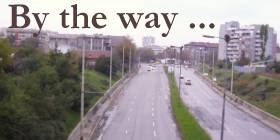
|
with Richard Graves
9. A Murderous Lyricist
|
Last time in this column I wrote about Fred Weatherly,
perhaps the most popular and successful ballad lyricist of all time. Running
him a very close second, though, was Edward F. Loxton.
Like Weatherly, Loxton was a keen amateur musician. As a youth his great
joy was to go to listen to as many great performers as possible. Among others
he heard Rubinstein - commenting He was a truly wonderful performer,
although I was astonished, and not a little pleased, to notice that he often
played wrong notes - just as I did! He queued for hours to hear Paderewski,
enthused over a Covent Garden performance of Pagliacci conducted
by Sir Augustus Harris, and later was delighted, not surprisingly, by hearing
Joachim in the Brahms Clarinet Quintet in which the soloist was Mühlfield,
revered alike by both Wagner and Brahms himself.
However it was the Boosey's Ballad Concerts that perhaps first whetted
Loxton's appetite for lyric writing - and that is hardly surprising when
you remember the class of singers to be heard at those popular events. Loxton
mentions Edward Lloyd, Santley, Mme. Patey, Alice Gomez and particularly
Antoinette Sterling. It was she indeed who took an interest in Loxton's
first attempt at lyric writing. Pathetic tear-jerkers were the in-thing
at that period, so Loxton duly produced verses about a child lost in
the snow, who eventually returned, apparently hale and hearty, to her parents.
Loxton submitted his verses to a highly esteemed composer of the time (his
big hit was Daddy), A.H.Behrend. Behrend obviously thought there
was some potential here, although the song's happy ending was not what people
expected or even wanted at that period. He therefore sent Loxton a telegram
"Kill the child in the last verse and will set song" - and one
wonders what the delivery boy might have made of that.
This, of course, Loxton wrote later, I promptly did. Mme. Sterling
sang the heart-breaking ballad and I became a song-writer.
From there he went on from strength to strength. The great Tosti, favourite
of Queen Victoria, set some of his words and right up to the 1930's he was
kept busy when Alan Murray collaborated with him to produce that splendid
ballad I'll Walk Beside You. Loxton had become a close friend of
his seeming rival Fred Weatherly and was an early member of the Board of
Directors of The Performing Right Society recently formed to collect fees
on behalf of composers, lyricists and publishers.
Edward Loxton appears to have been a man of considerable talent, sensibility,
culture and charm. He must have made a lot of money too - and all as a result
of killing off that poor little child all those years ago ...
Copyright © Richard Graves, June
17th 1999
Roses of Picardy >>
|